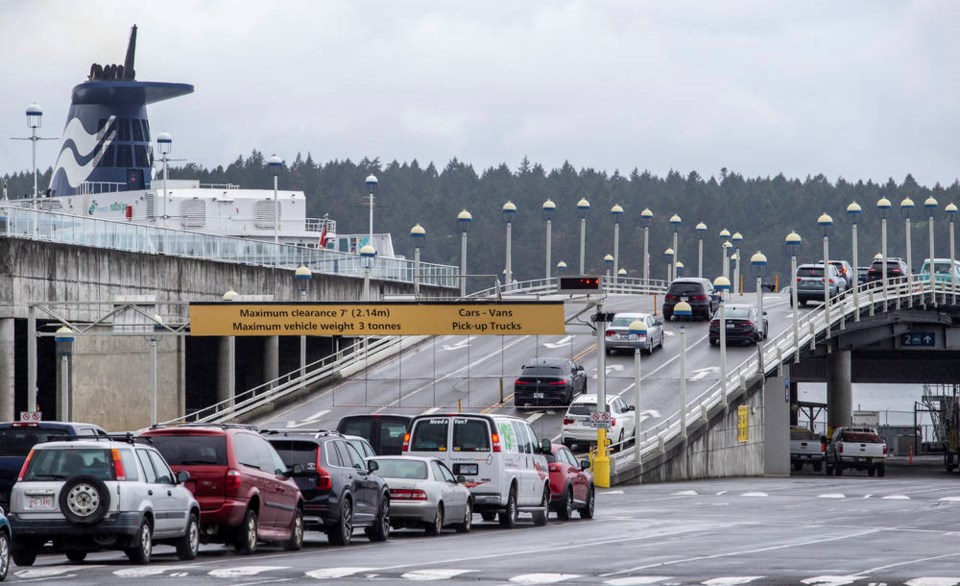It was smooth sailing on B.C. Ferries this past weekend as a ban on non-essential travel between health regions kept traffic away from terminals.
The vast majority of passengers were aware of and complied with the new rules, slated to run until May 25 after the long weekend.
“There were a handful of customers denied travel on the six routes that cross the regional zones as per the provincial order,” Deborah Marshall, B.C. Ferries’ spokesperson, said Monday.
“There was no need to call authorities. It was more a matter of a few people not being fully aware of the order. We had extra staff just in case.”
The number of management and security staff had been boosted at the six routes that connect different health regions in case of issues with unhappy travellers.
Travellers are asked at ticket booths, or online if they are booking reservations, if their trip is essential. If it is not, then B.C. Ferries will not sell them a ticket.
Travel considered essential includes going to work or school, commercial transportation of goods, returning to a principal residence, helping someone needing physical or psychological attention and going to a funeral.
B.C. is trying to pare down COVID-19 transmissions as a third wave hits the province.
Other measures brought in by the province include $575 fines for those found to be travelling outside of their own health region for non-essential reasons.
Routes affected are Swartz Bay and Tsawwassen, Duke Point in Nanaimo and Tsawwassen, the Southern Gulf Islands and Tsawwassen, Departure Bay in Nanaimo and Horseshoe Bay, Comox and Powell River, and Port Hardy and Prince Rupert.
Traffic across the fleet is dropping and was already down significantly because of the pandemic.
The latest numbers indicate that British Columbians are avoiding non-essential travel, Marshall said.
During the past weekend on the Tsawwassen-Swartz Bay route, B.C. Ferries was down by 34 per cent in passengers and by 24 per cent in vehicles compared to the previous weekend, Marshall said.
Compared to 2019, B.C. Ferries has seen an 82 per cent drop in passengers and 65 per cent in vehicles. Because the pandemic was announced by this time last year, 2019 is a more accurate comparison of how traffic has changed on B.C. Ferries.
On the Horseshoe Bay-Departure Bay route, B.C. Ferries saw a drop of 42 per cent in passengers and 37 per cent in vehicles this past weekend compared to the previous weekend.
And when compared to 2019, B.C. Ferries was down 77 per cent in passengers and 64 per cent in vehicles.
For the Tsawwassen-Duke Point route, B.C. Ferries saw a decline by 17 per cent in passengers and a decrease of seven per cent in vehicles this past weekend compared to the previous weekend.
This route normally sees a lot of commercial travel. When compared to 2019, B.C. Ferries saw a reduction of 74 per cent in passengers and 60 per cent in vehicles.
B.C. Ferries announced last week that it would not be putting on extra sailings on the May long weekend.
Normally it would add more sailings to accommodate a higher number of passengers.
Other measures brought in by the province include $575 fines for those found to be travelling outside of their own health region for non-essential reasons.
cjwilson@timescolonist.com



